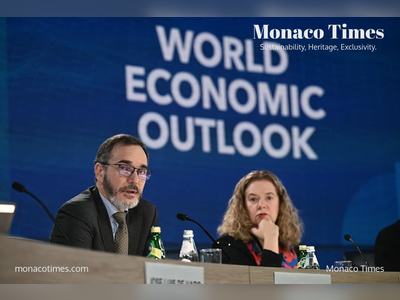Atiq Rahimi Reflects on Exile, Literature, and the Afghan Crisis
The Franco-Afghan writer and filmmaker discusses his literary journey and the impact of exile on his work during an event in Monaco.
Atiq Rahimi, the Franco-Afghan writer and filmmaker, was invited by the Monaco Media Library to the Louis Notari Library on March 20, 2025. Rahimi, who won the Prix Goncourt in 2008 for his novel _Syngué Sabour_ (P.O.L), shared insights into his life, the effects of exile on his creative work, and his current projects in an interview.
Rahimi participated in the event as part of the efforts of the association 'Au cœur des mots,' which aims to teach young people the joys of writing and to narrate their perspectives on the world.
He emphasized the importance of storytelling in creating awareness of one’s condition in the world and highlighted his ongoing commitment to mentoring young Afghan screenwriters in Brittany.
Born in Kabul in 1962, Rahimi was granted political refugee status in France in 1985. He discussed how his exile profoundly shaped his writing career.
Rahimi acknowledged that his recognition and opportunities in literature outside his native culture would have been limited had he remained in Afghanistan.
Drawing parallels with Victor Hugo's reflections on exile, he described it as a source of anguish and a means of transformation, stating, 'To become something else...
one must sever their roots.'
The writer's connection to France began early when he attended the Franco-Afghan Lycee in Kabul, where he was first exposed to French culture and cinema, particularly the works of the Nouvelle Vague.
He recalled that even as political upheaval forced faculty and students to re-evaluate their education environment, the French Institute in Kabul provided opportunities to learn and engage with film and theater, sparking his interest in the arts.
Rahimi recounted his journey to France, which began with his return to Kabul University to study, followed by a decision to escape to avoid military service under the Soviet-backed regime.
This perilous trek took nine days, culminating in his arrival in Pakistan, where he received support from French diplomatic contacts to obtain asylum.
In his remarks on the current situation in Afghanistan, Rahimi described the Taliban's return to power in August 2021 as incomprehensible and tragic.
He stressed the interconnectedness of geopolitical interests and the challenges faced by ordinary Afghans, lamenting that global powers often prioritize strategic gains over the welfare of the Afghan people.
He also expressed deep concern about the implications for women's rights in Afghanistan, describing the situation as dire; women and children bear the brunt of ongoing conflicts, with women being particularly vulnerable.
Rahimi has been vocal about support for Afghan activists, stressing the importance of their work amidst the broader geopolitical complexities that often overshadow individual rights.
He described the cynicism of global powers regarding the Afghan tragedy as troubling, especially when their interests dictate the narrative and action regarding human rights.
Despite the hardships and challenges of exile, Rahimi emphasized the duality of his artistic experiences, finding both solace in writing and joy in filmmaking.
He indicated that each artistic medium reveals different dimensions of storytelling, with writing representing a solitary journey while cinema offers collaborative creative expression.
In recent years, Rahimi has adapted his literary work into operatic form, exploring the intersection of different art forms.
He continues to work on a film, focusing on themes that reflect his experiences and cultural heritage.
He remains committed to using his platform to advocate for fellow artists and the rights of individuals in oppressive circumstances.
Rahimi participated in the event as part of the efforts of the association 'Au cœur des mots,' which aims to teach young people the joys of writing and to narrate their perspectives on the world.
He emphasized the importance of storytelling in creating awareness of one’s condition in the world and highlighted his ongoing commitment to mentoring young Afghan screenwriters in Brittany.
Born in Kabul in 1962, Rahimi was granted political refugee status in France in 1985. He discussed how his exile profoundly shaped his writing career.
Rahimi acknowledged that his recognition and opportunities in literature outside his native culture would have been limited had he remained in Afghanistan.
Drawing parallels with Victor Hugo's reflections on exile, he described it as a source of anguish and a means of transformation, stating, 'To become something else...
one must sever their roots.'
The writer's connection to France began early when he attended the Franco-Afghan Lycee in Kabul, where he was first exposed to French culture and cinema, particularly the works of the Nouvelle Vague.
He recalled that even as political upheaval forced faculty and students to re-evaluate their education environment, the French Institute in Kabul provided opportunities to learn and engage with film and theater, sparking his interest in the arts.
Rahimi recounted his journey to France, which began with his return to Kabul University to study, followed by a decision to escape to avoid military service under the Soviet-backed regime.
This perilous trek took nine days, culminating in his arrival in Pakistan, where he received support from French diplomatic contacts to obtain asylum.
In his remarks on the current situation in Afghanistan, Rahimi described the Taliban's return to power in August 2021 as incomprehensible and tragic.
He stressed the interconnectedness of geopolitical interests and the challenges faced by ordinary Afghans, lamenting that global powers often prioritize strategic gains over the welfare of the Afghan people.
He also expressed deep concern about the implications for women's rights in Afghanistan, describing the situation as dire; women and children bear the brunt of ongoing conflicts, with women being particularly vulnerable.
Rahimi has been vocal about support for Afghan activists, stressing the importance of their work amidst the broader geopolitical complexities that often overshadow individual rights.
He described the cynicism of global powers regarding the Afghan tragedy as troubling, especially when their interests dictate the narrative and action regarding human rights.
Despite the hardships and challenges of exile, Rahimi emphasized the duality of his artistic experiences, finding both solace in writing and joy in filmmaking.
He indicated that each artistic medium reveals different dimensions of storytelling, with writing representing a solitary journey while cinema offers collaborative creative expression.
In recent years, Rahimi has adapted his literary work into operatic form, exploring the intersection of different art forms.
He continues to work on a film, focusing on themes that reflect his experiences and cultural heritage.
He remains committed to using his platform to advocate for fellow artists and the rights of individuals in oppressive circumstances.











